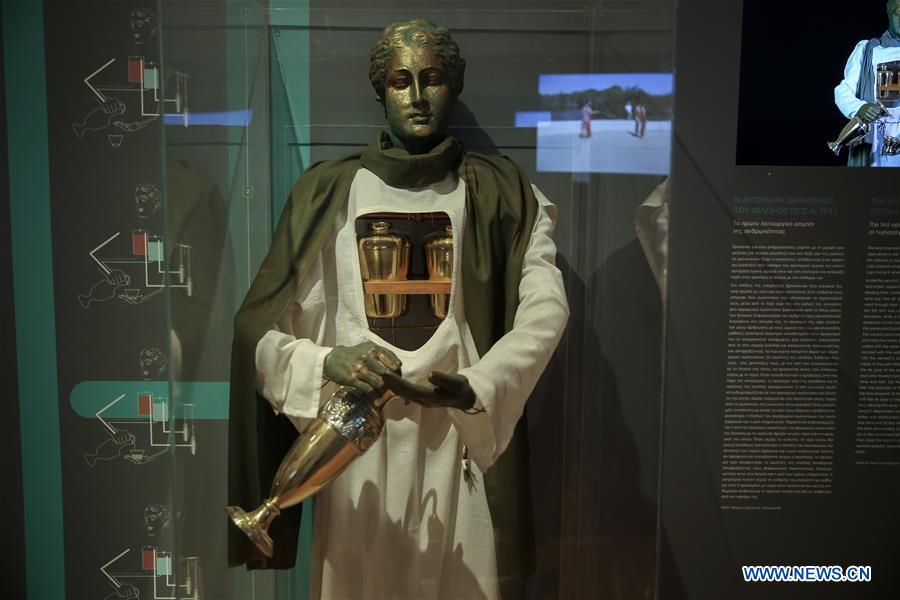Museum on ancient Greek technology offers insight into pioneering inventions
 0 Comment(s)
0 Comment(s) Print
Print E-mail Xinhua, January 26, 2018
E-mail Xinhua, January 26, 2018

A new museum dedicated to the impressive technological achievements of ancient Greeks has opened its doors to the public in Athens this January.
The Museum of Ancient Greek Technology -- Kostas Kotsanas is the first and only of its kind in Greece, offering locals and foreigners insight into pioneering inventions which have laid the foundations to modern technology.
Housed in a renovated art-nouveu building in the center of the Greek capital, close to the parliament, the museum is the result of three decades of research and hard work by Kostas Kotsanas.
The 55-year-old Greek mechanical engineer started thoroughly studying the relevant ancient Greek, Latin and Arabic literature as a university student, he told Xinhua in a recent interview.
He collected information from vase painting and archaeological finds before constructing on his own hundreds of replicas of instruments and mechanisms covering the period from 2,000 BC until the end of the ancient Greek world in the 1st century AD.
"The Museum of Ancient Greek Technology brings back to life about 500 great inventions of ancient Greeks... Here visitors can admire more than 100 reconstructions of these inventions," the founder told Xinhua.
"Whatever you see here has been reconstructed by me with the ancient techniques. I used the same kinds of wood and metals ancient Greeks used," he explained, pointing to the exhibits which include functional and interactive copies of instruments and sophisticated mechanisms used for astronomical and nautical measurements, elevation, sports and entertainment.
Among the most impressive models displayed in the museum are the automatic servant of Philon, the first operating robot of humanity created in the 3rd century BC, the automatic theater of Heron of Alexandria, the "cinema" of the 1st century AD, and the Antikythera calculating mechanism dated around 120 BC.
The highlights also include the repeating catapult of of Dionysius of Alexandria, the hydraulic clock and the fire pump of Ktesibios of the 3rd century BC, the Aeoloshere of Heron, the precursor of the steam engine, as well as the sound alarm device activated by the opening of a door, invented also by Heron.
Asked why he has invented so much time and effort in this herculean task, Kotsanas said he felt that he should preserve, promote and pass on to next generations an aspect of ancient Greek civilization which is rather overlooked and unknown compared to ancient Greeks' contribution to philosophy or art.
"It is like going back and looking for our roots, our ancestors. The ancient Greek technology shortly before the end of the ancient Greek era was strikingly similar to the beginning of our modern technologies," he said.
"This is what visitors will see coming here, technologies and methods which do not seem like belonging to the past, but the present and some of them as if they belong to the future," he stressed.
Kotsanas said he wanted to make it easier for his sons and young students from across the globe who seek sources for their research.
"Besides my sons who continue my work, several students from Greece and abroad have visited me requesting help for their postgraduate or PhD papers on this field," he told Xinhua.
His replicas have been displayed in hundreds of exhibitions organized across Greece and Europe and have even reached as far as the US, Australia and China.
Kotsanas plans to send more of his reconstructions to China for one more reason.
"I believe that the Greek and Chinese civilizations are the greatest when it comes also to technology," he said.
8abf9fdc-28c5-4772-b2ab-e0f10408aabd.jpg)




Go to Forum >>0 Comment(s)